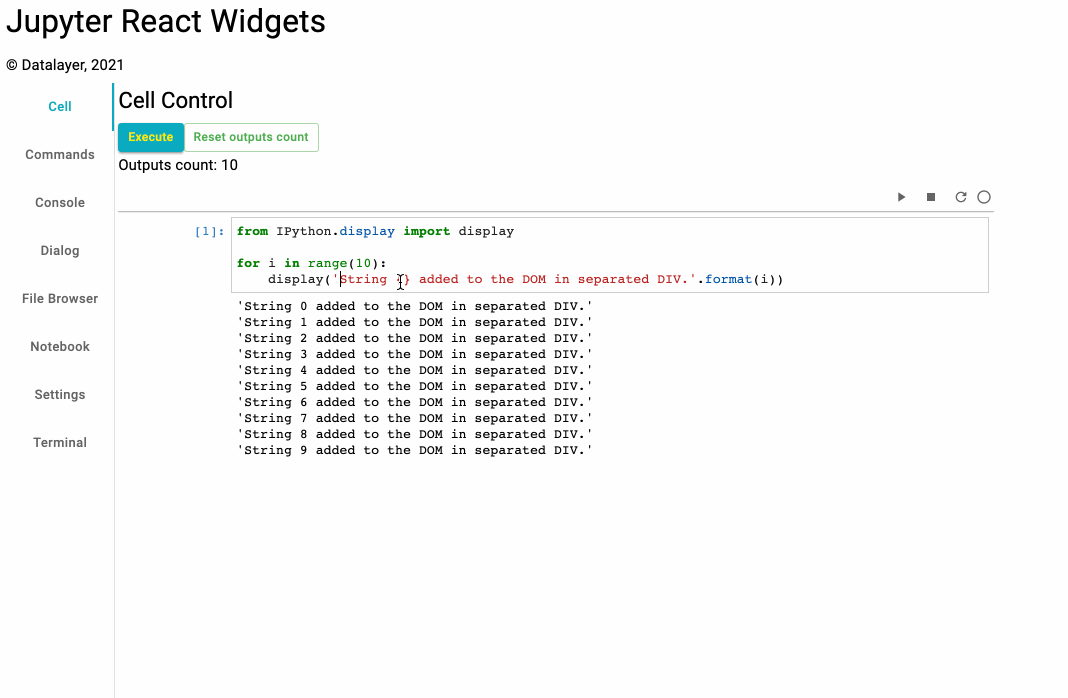Datalayer 0.0.6, a more React.js Jupyter
· 8 min read
We are thrilled to announce the 0.0.6 release of Datalayer. This release improves the data analytics user and developer experience with Jupyter React, a javascript library to ensure React.js is a first-class citizen in the Jupyter ecosystem.
Jupyter React is built on top of JupyterLab which aims to be the next default notebook for Python data scientists and is actively developed. However, some users sill prefer the classic notebook and JupyterLab is not yet mainstream... The following points can be the identified as the source of the shadow:
- The user interface is intimidating and quite complicated. An initiative to strip-down the user interface has been taken with Retrolab, but the result still looks pretty much like JupyterLab without visible value compared to the classic notebook. Users will even loose some beloved features like their preferred keyboard shortcuts, VIM mode, performance...
- The extensions ecosystem is rich but breaking changes in the core of JupyterLab have made the overall ecosystem fragile and subject to failures on installation.
- The overall performance (startup time, load large notebook, switch tabs...) is know to be degraded on JupyterLab.
- The recently merged realtime collaboration feature is solely not usable with a real multi-user authentication and authorization system.
- As developer, the Lumino widget toolkit which backs JupyterLab user interface is hard to use and looks pretty much like a Qt toolkit rather than like a modern javascript e.g. React.js, Vue.js, Svelte...

